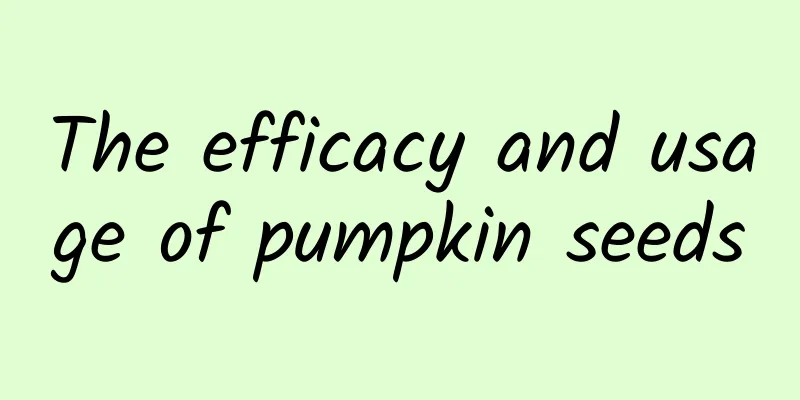What is the World Food Prize like? World Food Prize reviews and website information

|
What is the World Food Prize? The World Food Prize is the highest honor in the field of agriculture. It was established in 1986 and is hosted by the World Food Foundation. It is awarded annually to reward "the achievements of individuals who have advanced human development by improving the quality, quantity or availability of food in the world." He Kang, the former Minister of Agriculture of China, and Yuan Longping, the father of hybrid rice, have won the prize. Website: www.worldfoodprize.org World Food Prize: the highest honor in the global agriculture and food sectorThroughout human history, food has always been the basis of survival and development. However, in modern society, issues such as food security, agricultural production and sustainable development have increasingly become the focus of global attention. In order to recognize individuals or organizations that have made outstanding contributions to solving these problems, the World Food Prize came into being. As one of the most influential international awards in the field of agriculture, it has not only inspired the efforts of countless scientists, policymakers and practitioners, but also promoted the progress of the global food system. The World Food Prize was founded by Nobel Peace Prize winner Norman Borlaug in 1986 to reward outstanding individuals who have significantly improved global food quality and supply through innovative technologies, policies or practices. The prize is awarded annually with a prize of up to $250,000 and is hosted by the World Food Foundation in Iowa, USA. Since its establishment, dozens of winners from all over the world have been recognized for their outstanding achievements in agricultural science, policy reform, technological innovation and other fields. This article will comprehensively introduce the historical background, selection criteria, past winners and their influence of the World Food Prize, and explore the important role of the award in global food security issues. History of the World Food PrizeThe birth of the World Food Prize can be traced back to the mid-20th century, when the world was facing a severe food crisis. The population was growing rapidly, but food production could not meet demand, especially in developing countries, where hunger and malnutrition were particularly serious. It was in this context that Dr. Norman Borlaug, known as the "Father of the Green Revolution," proposed the idea of establishing an award specifically for outstanding contributions in the field of agriculture. Norman Borlaug is not only a plant pathologist and geneticist, but also a legendary figure in the history of modern agriculture. The wheat varieties he developed in Mexico successfully solved the food shortage problem in many countries, and he won the Nobel Peace Prize in 1970. Borlaug firmly believed that only through the advancement of science and technology can global food security be truly achieved. Based on this concept, he co-founded the World Food Prize with entrepreneur John Ruan, hoping to encourage more people to devote themselves to agricultural research and practice. The first World Food Prize was officially awarded in 1986, marking the official launch of this honor. Since then, the World Food Prize has become a beacon in the global agricultural field, attracting top talents from various disciplines to participate. World Food Prize Selection CriteriaThe World Food Prize selection process is rigorous and transparent, ensuring the authority and fairness of the award. Candidates must demonstrate the ability to have a profound impact on the global food system. Specifically, the following are the criteria that the selection committee focuses on:
In addition, the World Food Prize also places special emphasis on the importance of interdisciplinary collaboration. Whether scientists, farmers, business leaders or government officials, as long as their work meets the above criteria, they have the opportunity to be nominated. This inclusiveness allows the World Food Prize to cover a wider range of fields, covering everything from gene editing technology to agricultural economic policies. Previous winners and their contributionsSince 1986, the World Food Prize has recognized numerous outstanding individuals and teams. Here are some representative winners and their major achievements: He Kang: Founder of China's Agricultural ModernizationAs China's former Minister of Agriculture, He Kang led China's agricultural reform in the late 20th century. He promoted a series of policy adjustments, including the implementation of the land contract responsibility system, which greatly improved farmers' production enthusiasm. Thanks to his efforts, China's grain output achieved a historic breakthrough, laying a solid foundation for the country's economic development. In 2004, He Kang was awarded the World Food Prize for these outstanding contributions. Yuan Longping: The Father of Hybrid RiceYuan Longping is one of the most famous agricultural scientists in China and even in the world. Through his research and development of hybrid rice technology, he has greatly increased rice yields and helped hundreds of millions of people escape the threat of hunger. His research results have not only been widely used in China, but also in Africa, Southeast Asia and other regions, making an indelible contribution to global food security. In 2004, Yuan Longping and He Kang were awarded the World Food Prize together. Daniel Haller Zambrano: Latin America's agricultural pioneerThe 2012 winner, Daniel Haller Zambrano, is a plant breeder from Costa Rica. He is dedicated to developing crop varieties adapted to tropical climates, especially corn and beans, which have become an important source of food in many Latin American countries. His work has not only improved the income level of local farmers, but also promoted the conservation of biodiversity. Maria Anderson: Advocate for Women in AgTechMaria Anderson, the 2019 winner, is a South African agricultural economist. She focuses on the development of smallholder farmers and helps African women improve their agricultural production capacity through training and technical support. Her projects not only increase family income, but also enhance the community's ability to resist natural disasters. The impact of the World Food PrizeThe significance of the World Food Prize goes far beyond recognizing the achievements of individuals or organizations. It is also a symbol that represents the determination and wisdom of mankind in pursuing food security. The following are several major impacts of the award around the world: Encouraging technological innovationBy recognizing scientists who have made breakthroughs in agricultural technology, the World Food Prize has inspired more people to engage in related research. For example, the rapid development of gene editing technology in recent years is inseparable from the guiding role of the prize. The research results of many winners have been transformed into practical applications, benefiting hundreds of millions of people. Promoting international cooperationThe food problem is a global challenge that requires all countries to work together to address. The World Food Prize promotes cross-border collaboration by building a platform for experts from different countries to share experiences and exchange ideas. For example, many projects in Africa and Asia have benefited from technical support from European and American scientific research institutions. Raising public awarenessIn addition to academia and industry, the World Food Prize also actively promotes the importance of food security to the general public. Through various events and seminars, it reminds people of the threats to agriculture such as climate change and water shortages, and calls for action. Looking to the future: the mission of the World Food PrizeAs the global population continues to grow and climate change intensifies, food security issues become increasingly complex. The World Food Prize will continue to play a key role in promoting the development of global agriculture in the following ways:
In short, the World Food Prize is not only a recognition of past achievements, but also a guide for the future. As its official website ( www.worldfoodprize.org ) says: "Our goal is to create a world without hunger." This is a difficult task, but it is this sense of mission that makes the World Food Prize always shine brightly. |
<<: How is Milat and Bank? Milat and Bank reviews and website information
>>: Valero Energy Company Reviews and Website Information
Recommend
The efficacy and function of banana buds and the taboos of banana buds
Banana is a tropical plant. Its ripe fruit is a p...
The efficacy and function of chrysanthemum
Medal chrysanthemum, also known as medal flower, ...
How is Space.com? Space.com reviews and website information
What is Space.com? Space.com is the world's le...
Loquat jam making method and tutorial
Loquats are sweet and refreshing, can moisten the...
Fish porridge recipe steps
There are many types of porridge. Now we will int...
Can pregnant women eat bitter melon? Can pregnant women eat bitter melon?
Bitter melon, also known as bitter gourd, has man...
Papaya chicken wings ingredients and methods
Papaya chicken wings are a must-order dish for fr...
How to make dried fern
Have you ever eaten dried fern? Let me introduce y...
How to make jelly How to make jelly
Jelly is a favorite snack for many children, but ...
Benefits of eating garlic
Garlic is a spicy vegetable that is not originall...
Ingredients and cooking techniques for homemade taro noodles
Taro is a nutritious and healthy food. If you hav...
What are the medicinal values of longan and dried longan?
What are the medicinal values of longan and dri...
Peanut Tongcao Congee
Have you ever had peanut and tongcao porridge? Le...
Can mango and milk be eaten together?
Mango is a famous tropical fruit, containing suga...
The efficacy and function of sunflower oil
Sunflower oil, peanut oil, corn oil, olive oil an...









